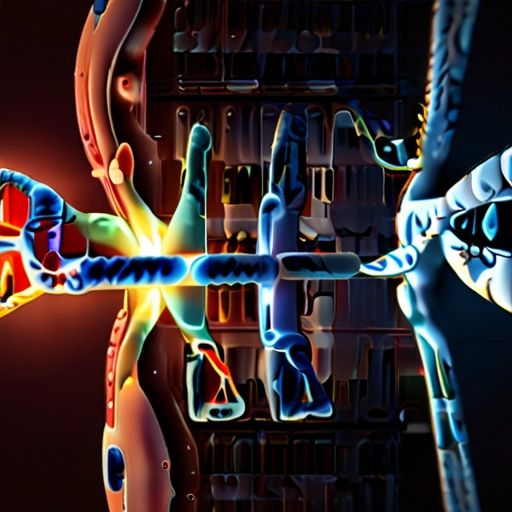Gastric cancer, also known as stomach cancer, is a condition that develops when cells in the stomach lining grow out of control. It is essential to recognize the signs and symptoms of gastric cancer early to improve the chances of successful treatment. In this article, we will discuss nine common signs of gastric cancer that individuals should be aware of.

Persistent Indigestion
One of the early warning signs of gastric cancer is persistent indigestion. If you experience ongoing discomfort or pain in the upper abdomen, bloating, or a feeling of fullness, it may be a sign of a more serious underlying issue. Individuals who have indigestion that does not improve with over-the-counter medications should consult a healthcare provider for further evaluation.
Unexplained Weight Loss
Unexplained weight loss is another common symptom of gastric cancer. If you find yourself losing weight without trying, and there are no changes in your diet or exercise routine that could account for the weight loss, it is essential to speak with a healthcare professional. Sudden weight loss can be a sign of various health conditions, including gastric cancer.
Severe Abdominal Pain
Severe abdominal pain that is persistent and does not improve with rest or over-the-counter medications could be a symptom of advanced gastric cancer. Individuals who experience sharp, intense pain in the abdomen should seek medical attention promptly for evaluation and diagnosis. Abdominal pain can be caused by a variety of conditions, including gastric cancer.
Loss of Appetite
A sudden loss of appetite or a feeling of fullness even after eating small amounts of food can be a sign of gastric cancer. Changes in appetite that are unexplained and persist over time should not be ignored. It is essential to consult a healthcare provider to determine the underlying cause of appetite changes and address any potential health issues.
Blood in Stool
Seeing blood in your stool can be alarming and may indicate various medical conditions, including gastric cancer. Blood in the stool can appear as red or black, and individuals should seek medical attention if they notice this symptom. It is crucial to undergo further evaluation to determine the cause of blood in the stool and receive appropriate treatment.
Persistent Fatigue
Persistent fatigue or weakness that does not improve with rest can be a sign of gastric cancer. Individuals with gastric cancer may experience extreme tiredness even after getting enough sleep or engaging in light activities. Fatigue can be a common symptom of cancer and should prompt individuals to seek medical advice for further evaluation.
Nausea and Vomiting
Nausea and vomiting are common symptoms of various health conditions, including gastric cancer. Individuals with gastric cancer may experience persistent nausea and vomiting, which can interfere with daily activities and quality of life. It is essential to consult a healthcare provider if you experience frequent or severe nausea and vomiting to determine the underlying cause and receive appropriate treatment.
Difficulty Swallowing
Difficulty swallowing, also known as dysphagia, can be a symptom of gastric cancer. Individuals with gastric cancer may experience a sensation of food getting stuck in the throat or chest when swallowing. Difficulty swallowing can be a sign of a blockage or narrowing in the esophagus due to cancerous growths. It is crucial to seek medical evaluation if you have persistent difficulty swallowing.
Jaundice
Jaundice is a condition characterized by yellowing of the skin and eyes, which can occur in individuals with advanced gastric cancer. Jaundice is caused by the buildup of bilirubin in the body when the liver is unable to function correctly. Individuals who develop jaundice should seek immediate medical attention for diagnosis and treatment. Jaundice can be a serious symptom that requires prompt evaluation by a healthcare provider.